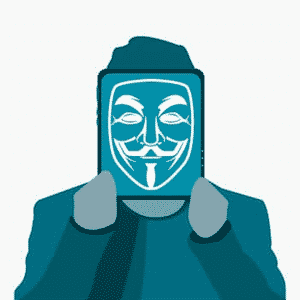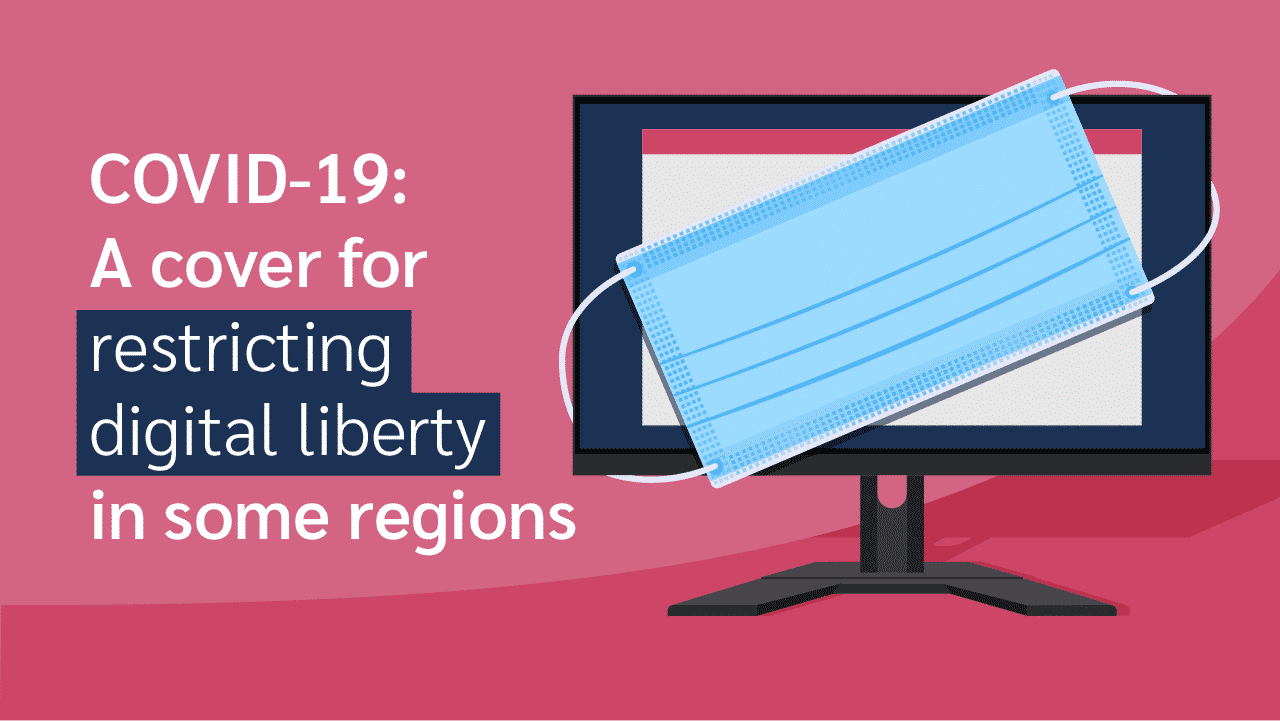COVID-19: A Cover for Restricting Digital Liberty in Some Regions
Three million people have died from COVID-19 since the virus started its rampage in 2019. The devastation this virus has caused worldwide is colossal, and several countries are still trying to recover from the damage. Asides from people, internet freedom is battling for survival in certain regions of the world. Some governments are using the pandemic as a cover-up to crackdown on freedom of expression and digital liberty.
Using policies and enacting ridiculous laws, these governments disguise under controlling the spread of inaccurate information regarding the pandemic to clamp down on voices that criticize their management of the COVID-19 pandemic, among other things. They have targeted journalists, activists, members of the public, and even health professionals in order to prevent them from painting authorities in a bad light. Freedom House, an NGO that advocates for internet freedom worldwide, shows an increasing attempt to curtail internet freedom with respect to the pandemic in one of its yearly reports.
The Battle Against Digital Liberty in the Middle East and North Africa
Freedom of speech, both offline and online, is well-known as a fundamental right for members of the public not bound by any laws of secrecy. Several countries in the Middle East and North Africa are in one way or the other limiting the freedom of their citizens with the guise that they are curtailing the spread of misinformation about the pandemic.
Meanwhile, their actions show they want to silence their critics, prevent the exposure of the mishandling of the COVID-19 situation in their countries, and expand their surveillance capabilities. Notable mentions are Turkey, Iran, Algeria, Bahrain, Morocco, Saudi Arabia, the UAE, Egypt, Tunisia, and Kuwait. These governments monitor social media platforms and websites to arrest journalists or take down their websites.
For example, in August 2020, a Turkish broadcasting company was fined because a guest on a TV program criticized the Turkish government’s response to the spread of the virus. In that same month, a newspaper in Iran was also shut down by the government after a report on it indicated that the government downplayed the spread of the virus.
There are several more examples of the governments of Middle Eastern and North African countries arresting citizens and journalists or shutting down media houses that criticize them. Let’s take a look at some of them.
Cases of Internet Restrictions During The COVID-19 Pandemic
Below, we’ll explore more reports of governments clamping down on digital liberty under the guise of the pandemic:
1. On April 9, 2020, the Egyptian government blocked access to Darb, a website that an opposition party owns, for publishing a report on the effects of the pandemic on political prisoners. People in Egypt could not access Darb’s website while it was accessible outside the country. Before this period, the Egyptian government forced a Guardian reporter out of the country for questioning its official COVID-19 statistics.
2. In April 2020, the Turkish government detained more than 400 people over a 42-day timeline for supposedly posting wrong and provocative information regarding the virus outbreak on social media.
3. On April 23, 2020, Iran arrested the managing director and social media admin of the Iranian Labor News Agency after they allegedly published a cartoon mocking Iranian leaders handling of the pandemic.
4. On April 19, 2020, the Algerian government passed a new law that allows them to fine and jail anyone who spreads “false news” regarding the pandemic and anything that will cause disunity.
5. On April 18, 2020, the UAE announced that it would fine people up to 20000 Dirhams if they spread medical information regarding the COVID-19 pandemic that is different from official statements.
6. On April 8, 2020, the Bahrain government moved a journalist in prison to solitary confinement after a video of him saying Bahraini authorities are not protecting prisoners from the spread of the virus surfaced.
There are several examples worldwide, but the increasing threat to digital liberty in the Middle East and North Africa amidst the COVID-19 situation is worrying. Now, people in these regions are fighting two battles: one against COVID-19 and another for internet freedom and digital liberty.
Abuse of Tracking and Surveillance Technologies
Another cause for concern is the sprouting of new digital technology to monitor citizens. Bahrain, Saudi Arabia, Turkey, and Kuwait are among the countries in these regions that have created applications for tracking COVID-19. While it is a wonderful initiative, these countries have a history of heavy surveillance and can use these apps to extend such capabilities.
For example, in Bahrain, people who have tested positive for COVID-19 must use the BeAware application with a Bluetooth bracelet to monitor their movement. They must also take selfies and upload them on the application to show they are in isolation. All data from this application goes to servers owned by the Bahraini government, and with its history of internet censorship and human rights violation, there is a cause to worry.
Conclusion
Authoritarian governments in the Middle East and North Africa have found a new excuse to continue repressing their critics and extend their digital surveillance capabilities. Passing vague laws that threaten the fundamental rights of their citizens will only allow further abuse of human rights prevalent in these regions.
Using the pandemic as a cover to restrict internet freedom and digital liberty is the lowest of the lows. It shows that they will go to any length to control the influence of social and digital media on their citizens. These governments should channel the energy they use to subdue their critics to boosting their healthcare sector and fixing the damage COVID-19 has caused to their economies.

